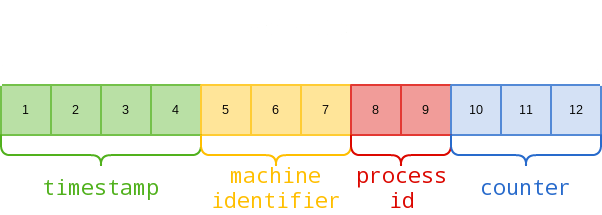3.5 KiB
27017,27018 - Pentesting MongoDB
Basic Information
MongoDB is an open source database management system (DBMS) that uses a document-oriented database model which supports various forms of data. (From here)
Default port: 27017, 27018
PORT STATE SERVICE VERSION
27017/tcp open mongodb MongoDB 2.6.9 2.6.9
Enumeration
Manual
from pymongo import MongoClient
client = MongoClient(host, port, username=username, password=password)
client.server_info() #Basic info
#If you have admin access you can obtain more info
admin = client.admin
admin_info = admin.command("serverStatus")
cursor = client.list_databases()
for db in cursor:
print(db)
print(client[db["name"]].list_collection_names())
#If admin access, you could dump the database also
Some MongoDB commnads:
show dbs
use <db>
show collections
db.<collection>.find() #Dump the collection
db.<collection>.count() #Number of records of the collection
db.current.find({"username":"admin"}) #Find in current db the username admin
Automatic
nmap -sV --script "mongo* and default" -p 27017 <IP> #By default all the nmap mongo enumerate scripts are used
Shodan
- All mongodb:
"mongodb server information" - Search for full open mongodb servers:
"mongodb server information" -"partially enabled" - Only partially enable auth:
"mongodb server information" "partially enabled"
Login
By default mongo does not require password.
Admin is a common mongo database.
mongo <HOST>
mongo <HOST>:<PORT>
mongo <HOST>:<PORT>/<DB>
mongo <database> -u <username> -p '<password>'
The nmap script: _**mongodb-brute **_will check if creds are needed.
nmap -n -sV --script mongodb-brute -p 27017 <ip>
Brute force****
Look inside /opt/bitnami/mongodb/mongodb.conf to know if credentials are needed:
grep "noauth.*true" /opt/bitnami/mongodb/mongodb.conf | grep -v "^#" #Not needed
grep "auth.*true" /opt/bitnami/mongodb/mongodb.conf | grep -v "^#\|noauth" #Not needed
Mongo Objectid Predict
Mongo Object IDs are 12-byte hexadecimal strings:
For example, here’s how we can dissect an actual Object ID returned by an application: 5f2459ac9fa6dc2500314019
- 5f2459ac: 1596217772 in decimal = Friday, 31 July 2020 17:49:32
- 9fa6dc: Machine Identifier
- 2500: Process ID
- 314019: An incremental counter
Of the above elements, machine identifier will remain the same for as long as the database is running the same physical/virtual machine. Process ID will only change if the MongoDB process is restarted. Timestamp will be updated every second. The only challenge in guessing Object IDs by simply incrementing the counter and timestamp values, is the fact that Mongo DB generates Object IDs and assigns Object IDs at a system level.
The tool https://github.com/andresriancho/mongo-objectid-predict, given a starting Object ID (you can create an account and get a starting ID), it sends back about 1000 probable Object IDs that could have possibly been assigned to the next objects, so you just need to bruteforce them.
Post
If you are root you can modify the mongodb.conf file so no credentials are needed (noauth = true) and login without credentials.
